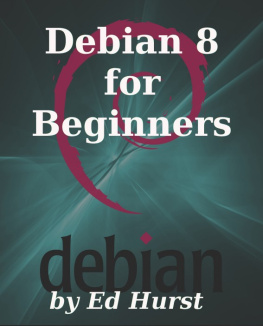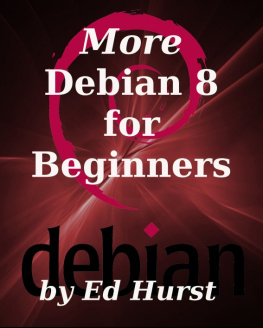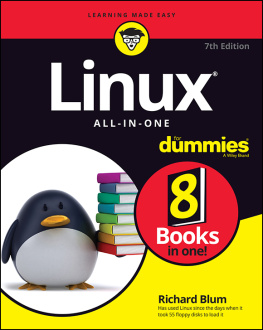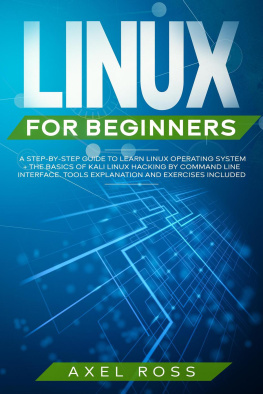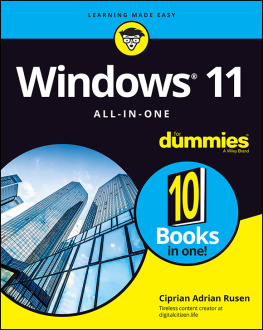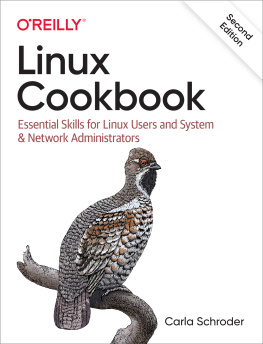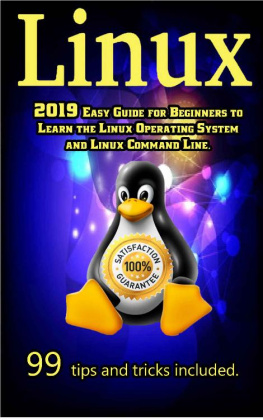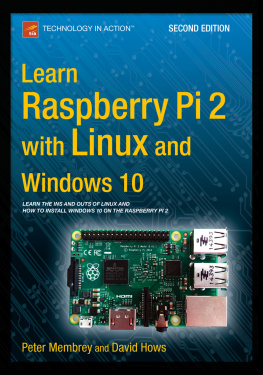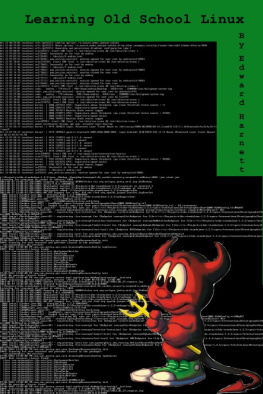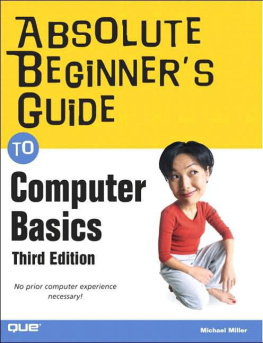The Shortest Path to Linux
By Ed Hurst; Smashwords Edition
Copyright 2014 by Ed Hurst
Copyright notice: The information, factsand data in this book are Open Source. The names Canonical, Ubuntuand Kubuntu are owned and copyrighted by Canonical, Ltd. Only theauthors composition in words, style of writing and editorialopinions are subject to authors copyright. Make all the copies youneed for your personal use, but please do not distribute thosecopies to others without authorization. The purchase price goes tosupport my computer tech support ministry.
Cover Art: Young woman with a Linuxlaptop; composite from public domain images.
Table ofContents
Read this first: This is not acomprehensive guide; such is available online for free. Rather,this is a companion guide for those considering migrating theircomputer from Windows to Linux. I went through the process ofinstallation and setup personally, and am filtering my thatencounter through more than two decades of experience working withWindows users, both as trainer and tech support. This guide willhelp Windows users to get their head around the substantialdifferences between their previous computer experience and theirfuture with Linux. This guide also covers the likely problems andgotchas not discussed elsewhere.
This book was originally composed as afree-standing webpage. It makes frequent reference to outsidesources on the Internet. It also includes a significant amount ofcommand line snippets that you will want to cut-n-pasted as youwalk through the installation and configuration process. If yourcopy of this guide is printed on paper or some other format makingsuch use inconvenient, you should contact me by email and request a copy of the original HTML version. Simply requestthe Kubuntu Guide. It will arrive in zipped format and you shouldunzip it and save to some backup device. Once the basicinstallation is complete, you can then insert your backup deviceand refer to the various links and code snippets necessary tocomplete the configuration.
In this edition, you will see sections ofbold faced text representing things you should or could typeinto your computers commandline, or simply what is displayedthere.
If you like Windows well enough, there is noreason to change.
The most tiresome thing I experience in readingabout Linux is the mindless enthusiasm of those utterly lacking inempathy and a sense of proportion. Most of us tend to think: Ifits not broke, dont fix it. That is foreign to Linux folks. Theitch to tinker and explore is essential to how Linux in particular,and Open Source software in general, came into existence. But thatdoesnt justify ignoring very real human needs. For most ofhumanity, computers are merely machines that save us time and makepossible blessings not available any other way.
This book is for folks who simply need to getwork done on a computer; for you, something about Windows justdoesnt quite cut it. At the same time, you have use for shocking,dramatic changes in how you use your computer. Most especially, youhave no use for changes simply for the sake of change.
Here are some possible reasons you might havefor switching from Windows to Linux:
1. Licensing Unless you are willing totake the risk of using pirated software, playing by the rules andlaws that favor corporate software makers can be very expensive.Linux is free and the licensing generally affects only those whomodify the software itself. You might have to pay for packaging,and there are some companies making software for Linux that isntfree, but virtually anything you actually need can be downloadedfor free. You can make all the copies you like and use it on asmany machines as you please.
2. Control Linux is very much aDo-It-Yourself (DIY) system. While you may not understand all thestuff running in the background necessary for it to work, theinformation is freely available as to what it is and why itsneeded. There is no cult of secrecy based on high-paid training andexpensive access to the obscure details of the system. You can getexpensive certification if you need it for your job or business,but its not required for simply using it. Indeed, the Linux usercommunity at large is usually quite eager to help you understand.The main point is that there is no secret agreement between thesupplier and some third parties forcing you to accept something notin your best interest just so they can make a profit at yourexpense. The Linux community as a whole is intensely anti-snoopingand refuses to surrender any control to third parties.
3. Security The Linux community is alsointensely pro-security, so it is generally harder to crack a Linuxsystem. Not impervious, its just that the computer is far lesslikely to suffer from external threats. Criminal hackers tend tolike using Linux themselves because of the built-in safety factors.By the same token, the background noise of clandestine chatterbetween computer criminals indicates they arent eager to face thechallenge of cracking a properly configured Linux box. Perhaps itspartly due to the much smaller numbers of systems they can harvestto their criminal activity at the cost of such difficulty. Thereisnt that much profit from all the work of attacking Linuxsystems, so we are unlikely to ever know how vulnerable it reallyis because too few are willing to invest time and resourcesattacking them. Even if you and all your friends switch to Linux,it will probably always remain a rather low proportion of personalcomputers connected to the Internet. (Servers are a differentstory.) At any rate, once you get used to how Linux stuff works,its okay to relax and not worry as much about random attacks toyour system. Rarely do the threats out there have any effect onLinux.
4. Bloat You can easily find auser-friendly Linux OS that is up-to-date and runs just fine onolder hardware. Thus, your old XP machine that cant really handleWin7 will run a current version of Linux just fine, and for quite afew years to come. This wasnt always true in the history of Linux,but in the past decade or so, Windows has begun demanding a lotmore power than Linux does for the same work.
The primary reason you wont switch from Windowsto Linux is lack of convenience. Open Source can be political, oreven downright religious, about a certain kind of technologicalorthodoxy. They dont like the idea of hardware makers keepingtrade secrets and refuse to understand how this affects users.Never mind all the political and philosophical hullabaloo fromLinux advocates, some hardware doesnt work, or doesnt work verywell, under Linux. You cant just pick up any old piece of hardwareat the electronics store and expect it work as advertised if yourun Linux. You have to be somewhat more discriminating. On theother hand, Im not the only computer user who found some Linuxdrivers much better than the Windows version.
Some activities are very complicated compared toWindows, such as home networking and sharing printers. Those thingscan be done, but it takes more work. And lets face it:Compatibility between Linux versions of software working alongsidethe Windows version for similar operations is hit-and-miss. OpenSource often lacks critical features. For a writer, the best wordprocessor you can get for free under Linux still does not comparevery well with even Word 2000. At the very least, grammar checkingin Linux remains primitive and almost useless. Open Source officesuites are always somewhere behind the commercial stuff. (But youcan easily make MS Office 2000 run on Linux, as well as otherpopular Windows stuff, as we shall see later.)
Dont stumble into this blindly. There areproblems with any choices you make. The next chapter examines theunderlying reasons why this is so.
If you have to watch out for your own interests,you at least have a chance with Linux.







